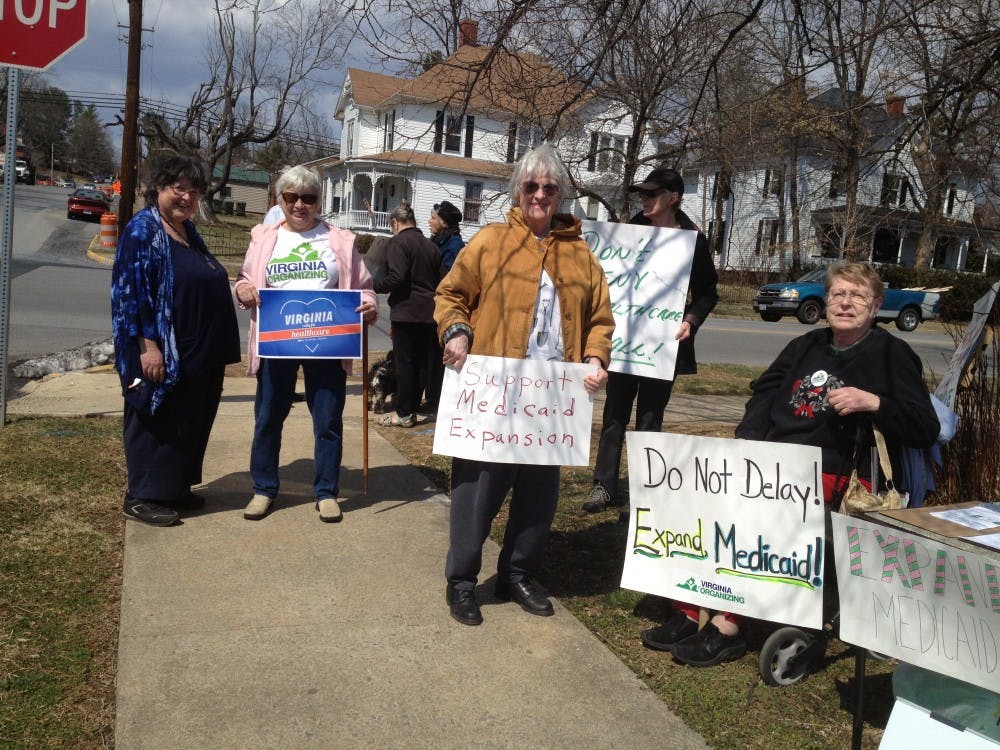Virginia Organizing, a liberal advocacy group, held a rally in nearby Waynesboro Friday encouraging the Virginia state legislature to pass a large expansion of the Medicaid program.
The Virginia General Assembly adjourned March 8 and has yet to pass the coming year’s budget, polarized over the issue of Medicaid expansion. Republicans want to consider Medicaid expansion as a separate issue, but Democrats want the expansion included in the general budget.
The 2010 Affordable Care Act required states to expand Medicaid, a health insurance program for low-income individuals. But a Supreme Court ruling in 2012 gave states the choice on whether to expand Medicaid, and Virginia has, thus far, chosen not to do so. Gov. Terry McAuliffe, however, campaigned on expanding Medicaid and has been vocal about his desire to do so since his election to office.
Virginia Democratic Party spokesperson Ashley Bauman said the Democrats’ demand is in line with Republican policy.
“[A] Republican Governor put Medicaid expansion in the budget,” she said.
House Republican spokesperson Matthew Moran said Medicaid and the state budget are independent debates.
“[Medicaid expansion] doesn’t belong in the budget. … Let’s get stability and then debate medicaid expansion in a separate section,” he said. “Our first priority is funding the state government.”
The General Assembly has been in stalemate since March 8. Moran said the gridlock causes a “tremendous amount of uncertainty” for state institutions, including the University, since they need to know the state budget before they can make their own funding decisions.
Elizabeth La Grua, a member of Virginia Organizing, said Medicaid expansion would not negatively affect the state’s budget since citizens would not have to pay for any of it until 2016. The federal government has already agreed to pay for the expansion for the first two years, she said.
“In that way, it doesn’t really have to be part of our budget at all,” she said. “That’s a false idea.”
La Grua said the focus should be on the 400,000 Virginians who fall into in what she calls “a coverage gap,” and do not currently qualify for Medicaid but would under the expansion. Many adults making less than the federal poverty line, especially those without children, are required to buy health insurance under the ACA but receive no federal subsidy to do so.
“Legislators have got to start thinking about being compassionate and taking care of these people,” La Grua said.
After two years of full funding, the federal government will phase down its contribution to 90 percent of Virginia’s Medicaid expansion cost. The government would pay $2 billion a year to the state, with Virginia paying the remaining ten percent, about $200 million, Moran said. Moran said he doubts the government would follow through on this promise.
“These are the same people that promised you can keep your doctor and your health care,” he said.
Moran maintained no expansion of Medicaid, which he called “a broken system,” should take place until the state legislature passes other reforms.
“You wouldn’t put 400,000 thousand people on a sinking ship, would you?” he said.







